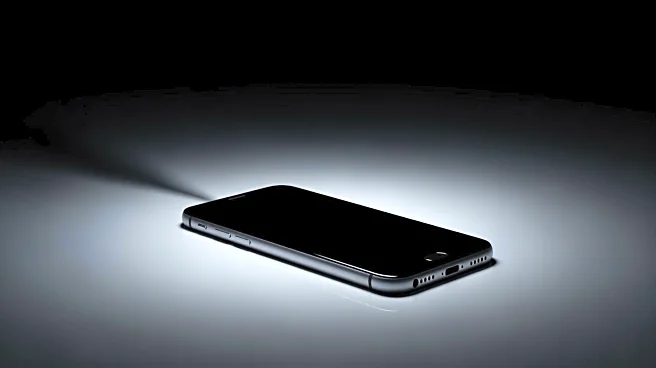What's Happening?
Organized crime groups have increasingly turned to phone theft, causing significant distress to victims. Fenella Rawling's experience highlights the emotional and financial impact of such crimes. Her iPhone
16, stolen in Cambridge, contained irreplaceable memories of her mother, who is battling lung cancer. The phone was tracked traveling to London, Dubai, and China, while Fenella received phishing texts attempting to exploit her compromised digital security. The Metropolitan Police report a rise in phone thefts, with 117,211 phones stolen in 2024, marking a 25% increase from 2019. Thieves often use electric motorbikes for quick getaways, prompting police to invest in high-powered bikes to counteract these crimes. The National Police Air Service employs helicopters to deter and track suspects, while individuals like Diego Galdino, a self-proclaimed 'pickpocket hunter,' contribute to efforts by warning potential victims.
Why It's Important?
The surge in phone thefts poses a significant challenge to public safety and digital security. Victims face not only financial losses but also emotional distress from losing personal data and memories. The crimes affect tourism and local businesses, as safety concerns deter visitors from areas like London. The Metropolitan Police's investment in high-powered bikes and the use of helicopters reflect the seriousness of the issue. These measures aim to curb the activities of organized crime groups, which have adapted to technological advancements to exploit vulnerabilities. The broader impact includes increased pressure on law enforcement and the need for public awareness campaigns to prevent such thefts.
What's Next?
Law enforcement agencies are expected to continue enhancing their capabilities to combat phone thefts. The Metropolitan Police's investment in high-powered bikes and collaboration with the National Police Air Service are steps towards more effective deterrence and apprehension of suspects. Public awareness campaigns may be intensified to educate individuals on securing their devices and data. The involvement of civilians like Diego Galdino in crime prevention efforts could inspire more community-based initiatives. As organized crime groups evolve their tactics, ongoing adaptation and innovation in law enforcement strategies will be crucial.
Beyond the Headlines
The rise in phone thefts underscores the ethical and legal challenges in addressing organized crime. The use of technology by criminals to evade capture highlights the need for robust cybersecurity measures and international cooperation. The emotional toll on victims, losing irreplaceable memories and personal data, raises questions about digital privacy and the responsibility of tech companies to enhance security features. Long-term shifts may include increased investment in public safety infrastructure and a reevaluation of urban security policies.










